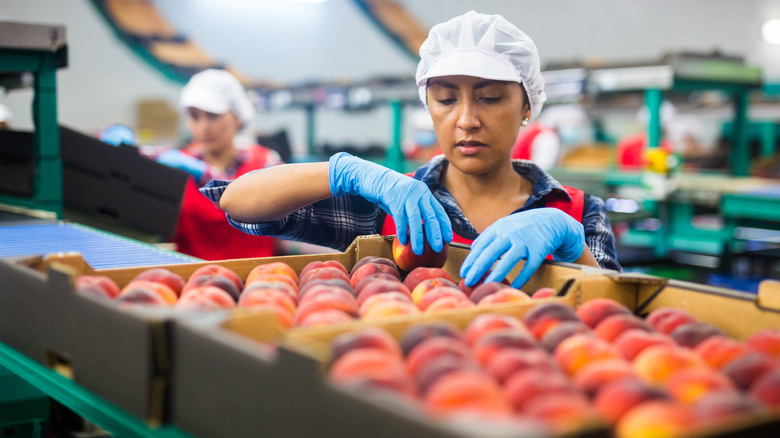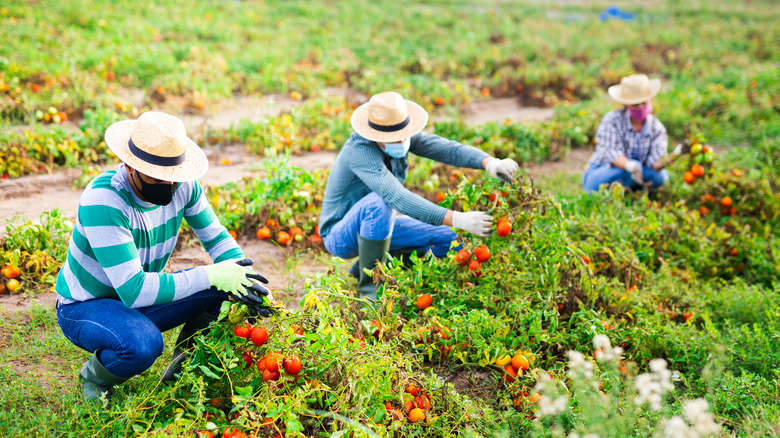How California Employers Failed To Protect Food Workers From COVID
Throughout the roller coaster waves of the pandemic, workers and employers have had to remain flexible as they apply COVID-19 safety guidelines to an ever-changing workplace. Healthcare workers, emergency service providers, and certain food workers were amongst the groups deemed essential and continued working to keep communities safe and the economy afloat (per California For All). COVID safety protocols were implemented to keep essential workers safe, but a study conducted by the California Institute for Rural Studies (via North State Public Radio) revealed that many food and agriculture workers in California did not receive proper protection from their employers.
While some restaurants strived to gain essential status to keep their businesses afloat during the pandemic, food production workers struggled with a lack of safety measures in the workplace. Farm labor workers, employees in meat and produce processing facilities, and dairy workers reported that food production employers and subcontracting agencies failed to follow the Cal/OSHA health and safety guidelines designed to keep them safe. Workplace inspectors cited California food production employers with COVID-19 safety guideline violations were four times more than employers of all other industries combined (via California Institute for Rural Studies via North State Public Radio). Despite the egregious violations, food production employers are paying lower fines on average.
Which safety guidelines were violated?
Essential employees working in agriculture and food processing jobs relied heavily on their employers to provide a safe working environment during the pandemic. According to Cal Matters, some California food production employers failed to provide a basic workplace safety plan to keep their workers safe. Farm and food production workers didn't have access to face masks and were rarely socially distanced while working. Many employers did not have or failed to implement a workplace health and safety plan despite a 1991 state law requiring a system to be enforced. Employers also failed to notify workers and proper authorities when there was a COVID infection outbreak in the workplace. While some employers pointed the finger at their own employees' failure to wear masks and follow guidelines, the California Institute for Rural Studies (via North State Public Radio) reported that workers asking for basics like masks were sometimes laughed off.
The 21.5 million farm and food workers who keep food production running despite pandemic challenges deserve access to basic safety measures from employers. Essential workers across industries are frustrated with their treatment during the pandemic and demand better. California state officials recommend hiring more Cal/OSHA staff trained to work specifically with food workers, improving paid sick leave for employees, and implementing more collaborative safety plans, among other advances, to keep the nation's largest workforce safe.

